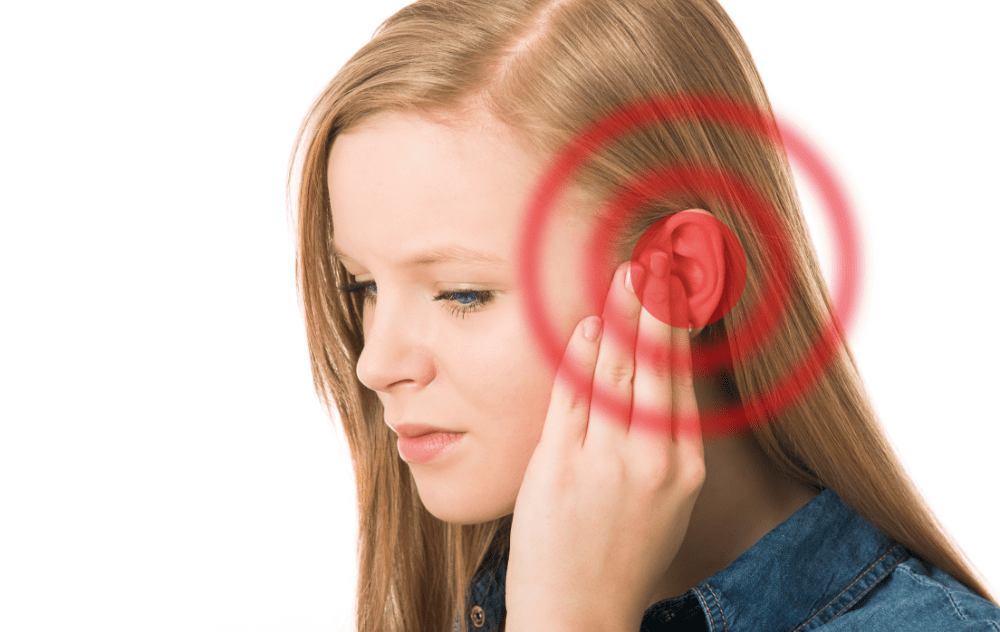Tinnitus
Do you often hear a ringing, hissing, rushing, or squealing noise in your ears that you find very bothersome, yet other people don’t seem to hear it?
If you answered yes, you may have tinnitus.
Tinnitus is a very common condition in which you hear noise in your ears that is not present in the surrounding environment. It could be a buzzing, ringing, or rushing sound, and sometimes can be so annoying it can even disturb your sleep.
A comprehensive hearing evaluation along with a discussion of your health history can help determine if you’re suffering from this condition, and even help determine how to treat it.
DON'T WAIT!
Early treatment is the most effective treatment. Talk to the experts. Call or text us.
What causes it?
Approximately 50 million adults in the U.S. suffer from tinnitus, making it a very common condition. Some find it to just be an annoyance, while others suffer enough to disrupt their sleep and concentration. Extreme cases can damage relationships, job performance, and even mental health.

Tinnitus is typically caused by:

Hearing Loss
The majority of people suffering from tinnitus also show signs of hearing loss.

Loud Noise
Excessive and loud noise can permanently damage your hearing and cause tinnitus. And if the exposure continues, it can make BOTH of those conditions steadily get worse.

Medication
A large number of prescription and over the counter medicines can contribute to causing tinnitus. Talk to your doctor about any medications you are on if you notice any issues.

Other potential causes
Neck and jaw problems, allergies, cancerous tumors, and even problems with your blood vessels and heart could all be potential contributing factors towards tinnitus.
Why wait? You don’t have to live with hearing loss.
So what should I do?
Step one: contact us and schedule an appointment for a hearing evaluation. Our hearing specialist can determine if you’re suffering from tinnitus, what the likely causes might be, and what could help you treat it.
If there is some other medical issue responsible, the specialist may refer you to an ENT for further testing and diagnosis.


You don't want to make it worse.
It’s important to wear proper hearing protection if you work in an environment where you’re exposed to loud noise. Also try to avoid alcohol and smoking, as they can have an adverse effect on your ears.
If you notice you have trouble hearing over the tinnitus, ask people to speak clearly and loudly, without shouting at you.
Different Types of Tinnitus Treatment
By conducting a comprehensive hearing evaluation and discussing your health history, our specialist will be able to advise which of the following would be best for you:
Not only can hearing aids enhance your hearing, but they’re also able to mask or cover up your tinnitus. Most patients with tinnitus notice partial or complete relief through the use of hearing aids.
Tinnitus maskers may look like hearing aids, but they’re actually small electronic devices specifically designed to mask or cover up your tinnitus by generating certain sounds.
In certain situations, nutritional supplements and even medicines may be recommended to provide relief.
Oftentimes your tinnitus can be affected and worsened by allergies. If an allergy test is positive, then this could have a dual effect of not only treating your tinnitus, but also boosting your energy.
Tinnitus therapy really does work — let us help you find relief from this condition.
Our Process

Hearing Exams

Audiogram Results & Reviews

Hearing Loss Consultation & Hearing Aid Demostration

Hearing Aids Overview

Discuss Pricing, Repairs & Warranty

Two Week Follow Up Appointment

Trial Period

Same Day Delivery of Healing Aids
